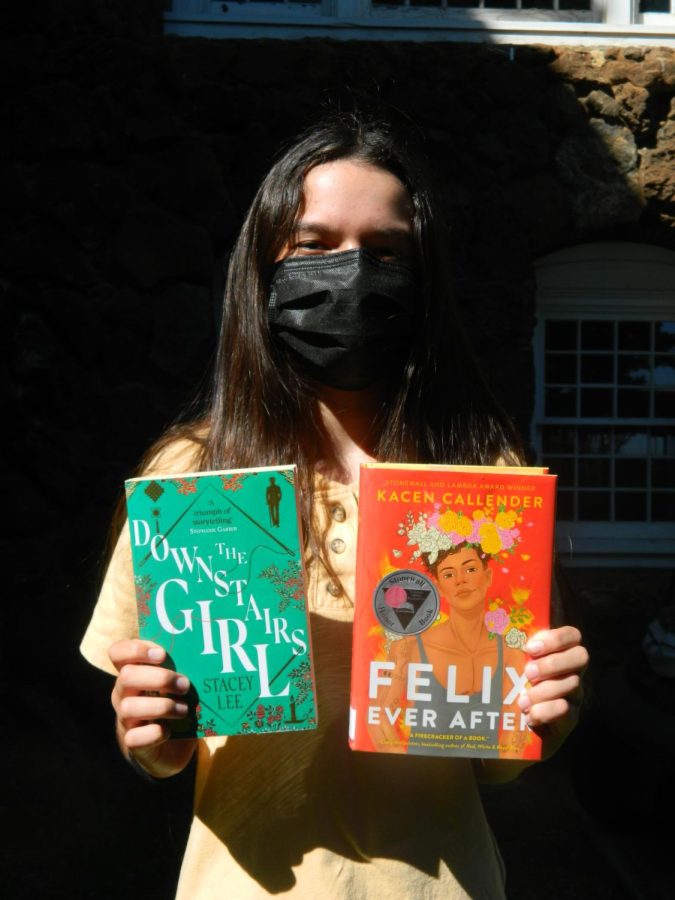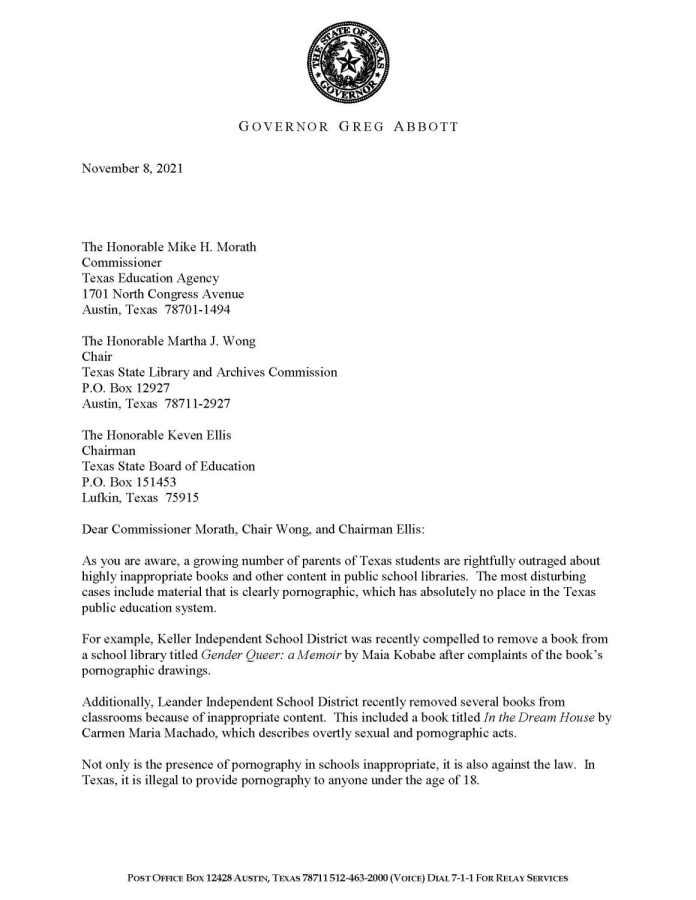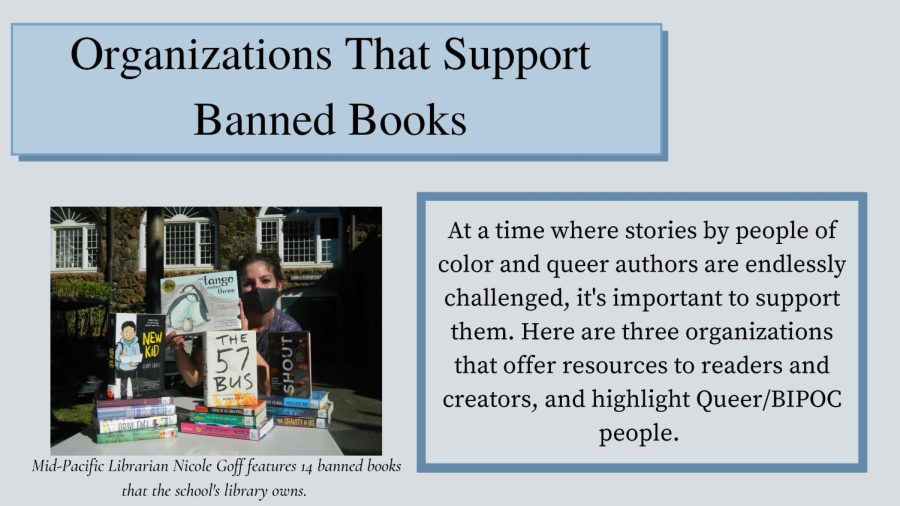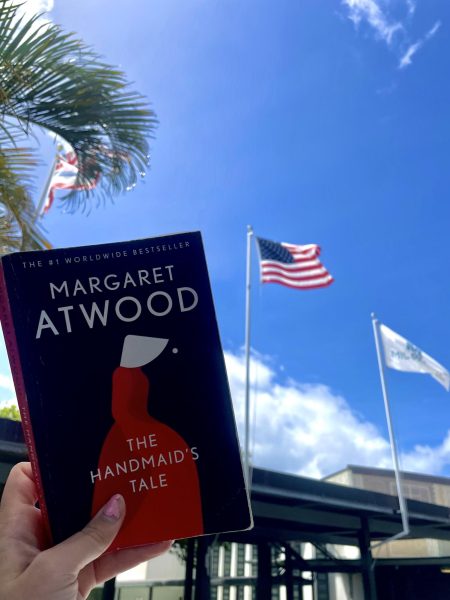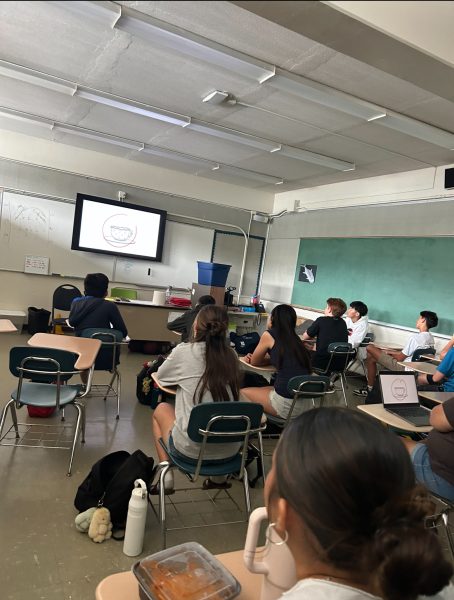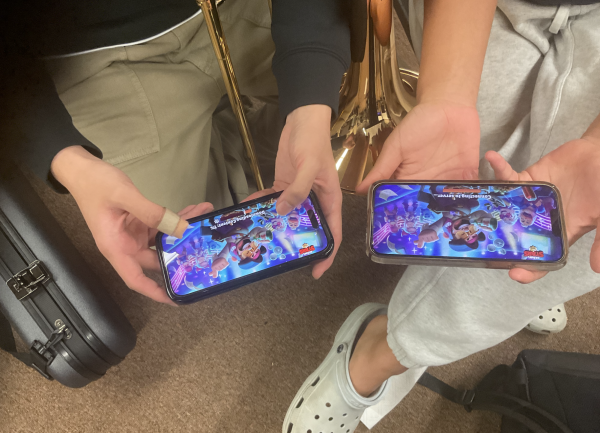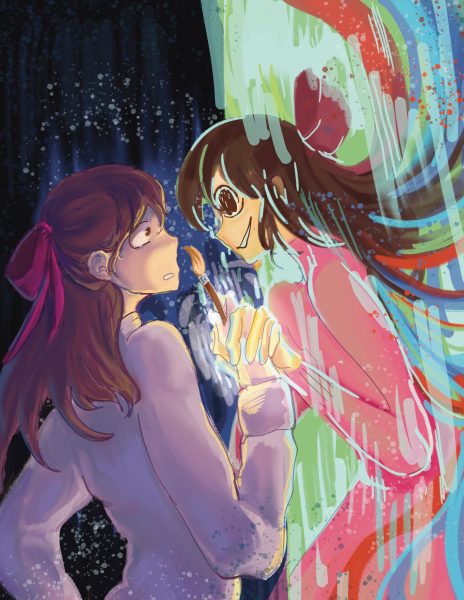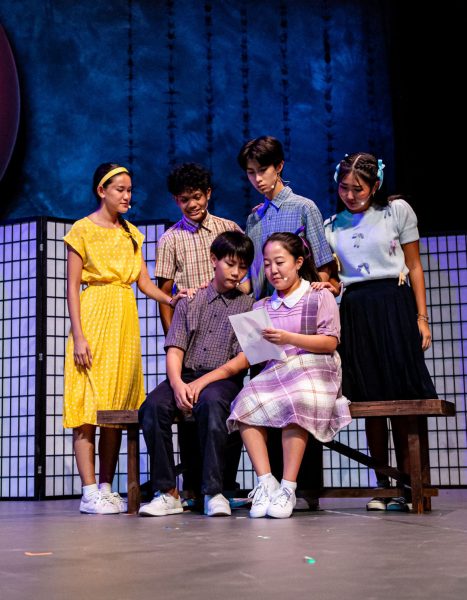Be an outlaw, read banned books
Freshman Eva Rogers holds her favorite books from Representative Matt Krause’s booklist, “The Downstairs Girl” and “Felix Ever After”.
tI was mindlessly looking through Instagram when the word “pornography” stopped me in my tracks. I looked and realized it was a story post from Author Carmen Maria Machado, reading: “Today the governor of Texas called my memoir ‘pornography,’ so, uh.”
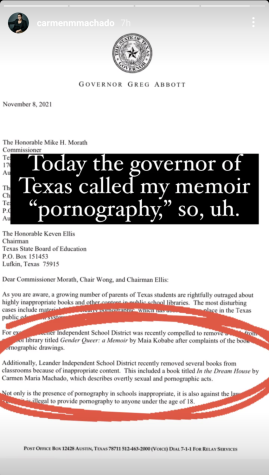
The book in question, “In the Dream House,” is a memoir that details an abusive same-sex relationship Machaddo experienced and it happens to be one of my favorite books. I turned my nose at Govenor Greg Abbott’s use of the word “pornographic” when describing a queer woman’s struggles but didn’t think too much about it after hand. This was not the first time a book I liked was challenged and I would soon see, it certainly wasn’t the last.
On Oct. 25, 2021, Texas Representative Matt Krause compiled a list of 850 books attached to a letter that he wanted schools to see if they owned. He also wanted schools to preform an overall inventory check for any books that “might make students feel discomfort, guilt, anguish, or any other form of psychological distress because of their race or sex.”
Data from Book Riot states that 62.4% of the books on the list were LGBTQ+ stories, 14.1% were books on sexual education, 8.3% centered on race, and the remainder were miscellaneous stories. The parallels from Abbott’s letters and Krause’s list are hard to ignore: the targeting of queer BIPOC stories.
The titles on the list continued to shock me as I scrolled through it. What I had originally read as impactful, educational, and heart touching stories were being portrayed as stories aimed to make people feel “discomfort.” This emotion may be felt by readers who aren’t open to hearing ideas or feelings that differ from what is stereotypically seen as “normal” or “acceptable”.
“The people that petition to ban books don’t typically have the most accepting viewpoints, so the idea that a child could be exposed to something they consider harmful or sinful or inappropriate scares them,” junior Jasper Ho said.
But instead of assessing why one would feel guilty or uncomfortable, these books are tossed aside. People may feel guilty when reading about diverse life experiences because of the ways they may have, unknowingly or not, profited off of or contributed to the continued oppression of minorities. We can also acknowledge that certain books will make people uncomfortable due to sexual/graphic content regardless of what the overarching message of the book is.
“If you are nixing the embarrassing things or the things that might make you feel guilty, how are you gonna become a better person? How are you going to know that’s something about me that might need to change– that there is something I might have said or done that may have hurt someone else,” librarian Nicole Goff said.
Getting rid of these books prioritizes the feelings of those with privilege and sends a message that we should be more worried about making privileged people uncomfortable at the expense of marginalized people.
We’re setting ourselves back in terms of making progress. Banning these titles blocks young people from even having conversations about what privilege is and understanding the intersections of our nation’s bodies. It also stops marginalized youth from seeing themselves represented.
“Seeing yourself reflected in stories is important because it makes you more confident in who you are, and you’re seeing a part of your identity being normalized and accepted,” said freshman Eva Rogers.
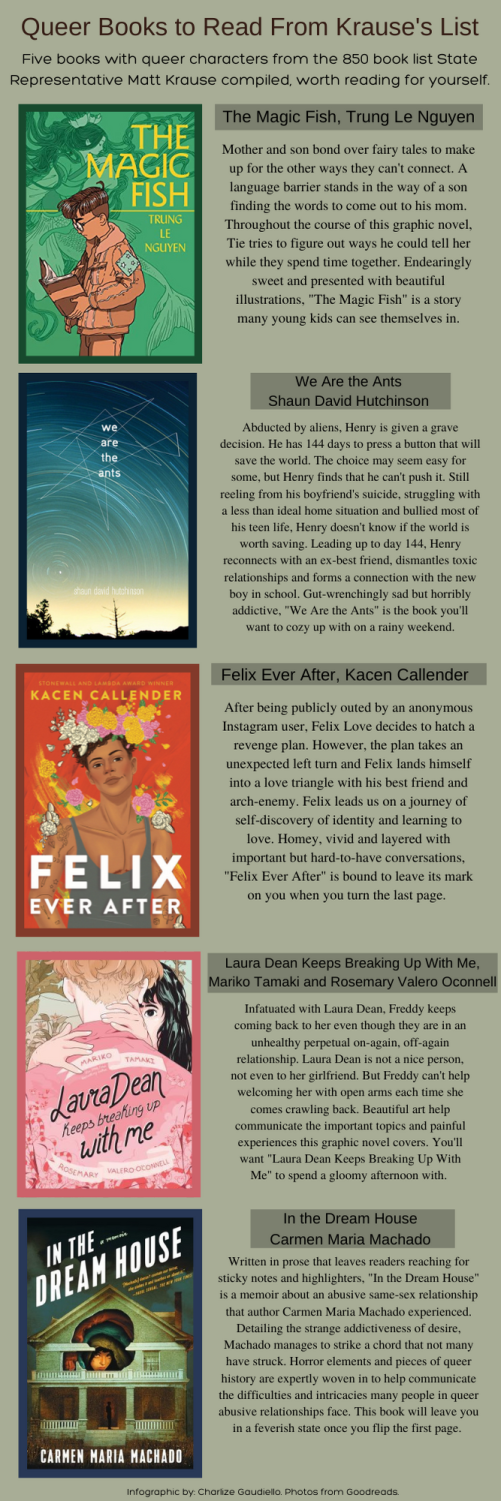
The best part about reading the books on these lists is learning about different experiences. It helps people of all ages build empathy for those who struggle in the ways they don’t and helps build an understanding about the importance of recognizing those differences.
“There are so many things that have been written about how fiction makes us more empathetic people. What you need to do–as the person, as the parent, or as
the principal, or as the district administrator—is understand the value of these works and how to make them available,” said Goff.
Read those books on Krause’s list. Support authors who are trying to build a more accepting community by checking their books out at the library, purchasing a copy, or however you access and read books. Challenge the narratives that people banning books want you to believe.
“The people we really need to protect are the young LGBTQ+ kids who are growing up facing homophobia and transphobia and not being ever told that it’s okay to be who you are. And through books, these kids can see that they can be proud of their identities,” said Rogers.

